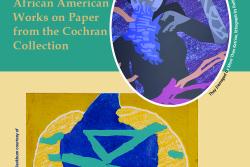Open through April 16, Records of Life explores the ways people organize and make sense of their thoughts, experiences, and life. Using the written records of Harrison Elliott, a paper historian active in the first half of the 20th century, this exhibit dives in to the methods people use to make information useful to themselves and to others.
In the exhibit, records are divided into three categories: Records of Thought, Records of Communication, and Records of Practice. Each record type has a different purpose and audience. Records of Thought are the ideas and plans meant only for the author. Records of Communication has a wider audience—the recipient of a letter or note. Conversations take place over weeks or months, rather than that of in-person communication. Records of Practice has the broadest audience, the articles and publications meant for anyone interested in the subject.
Through notebooks, letters, calendars, and other ephemera, the exhibit explores how information is sorted and shared over time. In addition to pieces from Harrison Elliott’s collection, the exhibit includes logbooks from the Institute of Paper Chemistry, contemporary bullet journals used by Georgia Tech students, and more.
The museum is open for visitors, but please make a reservation before coming. Regular hours are Monday-Friday, 9-5. Free admission. Parking is available in the lots in front of and beside the museum. Download the ParkMobile app to pay for parking.
